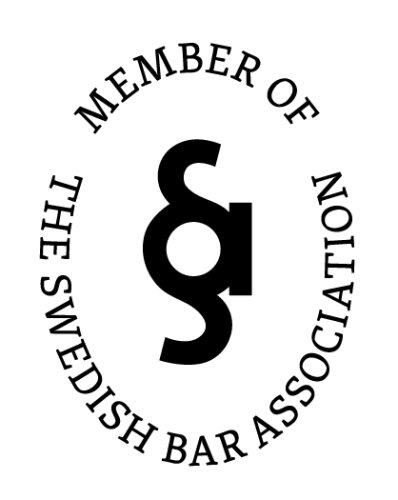Best Real Estate Lawyers in Sweden
Share your needs with us, get contacted by law firms.
Free. Takes 2 min.
Free Guide to Hiring a Real Estate Lawyer
Or refine your search by selecting a city:
List of the best lawyers in Sweden
About Real Estate Law in Sweden
Real Estate law in Sweden falls under a well-structured legal and regulatory framework intended to govern transactions, ownership, and use of property. It includes residential, commercial, and industrial properties and is designed to protect the rights and obligations of all parties involved. Swedish property law is primarily governed by the Land Code (Jordabalken), which regulates real estate transactions, the establishment of ownership rights, and other property-related matters.
Why You May Need a Lawyer
Real estate transactions and disputes can be complex, and there are several situations where you might need legal assistance:
- Buying or selling a property: Ensuring that the transaction complies with legal requirements and that all necessary documentation is in order.
- Property disputes: Issues related to boundaries, ownership rights, or agreements between parties.
- Rental agreements: Drafting and reviewing lease contracts to ensure they are legally binding and protect all parties involved.
- Zoning and land use: Understanding the regulations that govern what can be done with a property.
- Inheritance issues: Managing or disputing property transfers following a death.
Local Laws Overview
In Sweden, several key aspects must be considered regarding real estate laws:
- Land Registration: All real estate transactions must be registered with the Land Registration Authority (Lantmäteriet) to be recognized legally.
- Ownership Rights: The owner listed on the property register holds the legal title and rights to the property.
- Tenant Rights: Sweden has robust tenant protection laws that safeguard the rights of residents in rental properties.
- Building Regulations: Detailed codes govern the construction, renovation, and maintenance of real estate to ensure safety and sustainability.
- Zoning Laws: There are specific land-use rules that dictate the permissible activities on different types of property.
Frequently Asked Questions
1. How is property ownership transferred in Sweden?
Ownership is transferred through a sale agreement (köpekontrakt) and a deed of sale (köpebrev), both of which must be registered with Lantmäteriet.
2. Are there any taxes when buying property in Sweden?
Yes, buyers need to pay a stamp duty (lagfartskostnad) on real estate purchases, typically 1.5% of the property's purchase price.
3. What protections do tenants have in Sweden?
Tenants enjoy strong protections, including secure tenure and regulations on rent increases. Lease agreements must be in writing.
4. Can foreigners buy property in Sweden?
Yes, there are no restrictions on foreign ownership of real estate in Sweden.
5. How are property disputes resolved in Sweden?
Property disputes can often be resolved through mediation; however, they may also proceed to the Swedish courts if a resolution cannot be achieved amicably.
6. What is a co-op (bostadsrätt) in Sweden?
A cooperative housing unit (bostadsrätt) is a common form of ownership where residents own shares in a cooperative association rather than direct ownership of the property.
7. How is property value assessed for tax purposes?
Property value is assessed based on market values, which occur every third year. The result impacts property tax rates.
8. What is included in a property survey?
A property survey typically includes detailed information on property boundaries, dimensions, and any existing easements or encroachments.
9. Are there specific environmental regulations to consider?
Yes, Swedish law may impose specific regulations to ensure that real estate developments are environmentally sustainable and that any environmental risks are managed properly.
10. How can I finance a property purchase in Sweden?
Property purchases are typically financed through bank loans. Most banks require a 15% down payment and assess the buyer's financial situation before approving a loan.
Additional Resources
Several resources can provide additional information or assistance regarding real estate in Sweden:
- Lantmäteriet: The Swedish mapping, cadastral, and land registration authority.
- Konsumenternas: Provides guidance on financial and consumer rights, particularly in the context of property transactions.
- Fastighetsmäklarinspektionen: The regulatory authority responsible for overseeing real estate agents in Sweden.
- Local Municipalities: Each local authority provides additional rules and guidelines regarding zoning and land use.
Next Steps
If you require legal assistance in real estate, consider the following steps:
- Identify the specific legal area of concern and gather all relevant documentation and information.
- Contact a qualified legal expert specializing in Swedish real estate law. You can find legal professionals through the Swedish Bar Association or other professional organizations.
- Consult with the legal professional to discuss your situation and get advice on the likely outcomes and best courses of action.
- Ensure you understand all the potential costs associated with legal services and agree on a fee structure before proceeding with any legal action.
Lawzana helps you find the best lawyers and law firms in Sweden through a curated and pre-screened list of qualified legal professionals. Our platform offers rankings and detailed profiles of attorneys and law firms, allowing you to compare based on practice areas, including Real Estate, experience, and client feedback.
Each profile includes a description of the firm's areas of practice, client reviews, team members and partners, year of establishment, spoken languages, office locations, contact information, social media presence, and any published articles or resources. Most firms on our platform speak English and are experienced in both local and international legal matters.
Get a quote from top-rated law firms in Sweden — quickly, securely, and without unnecessary hassle.
Disclaimer:
The information provided on this page is for general informational purposes only and does not constitute legal advice. While we strive to ensure the accuracy and relevance of the content, legal information may change over time, and interpretations of the law can vary. You should always consult with a qualified legal professional for advice specific to your situation.
We disclaim all liability for actions taken or not taken based on the content of this page. If you believe any information is incorrect or outdated, please contact us, and we will review and update it where appropriate.
Browse real estate law firms by service in Sweden
Sweden Attorneys in related practice areas.
Browse real estate law firms by city in Sweden
Refine your search by selecting a city.















